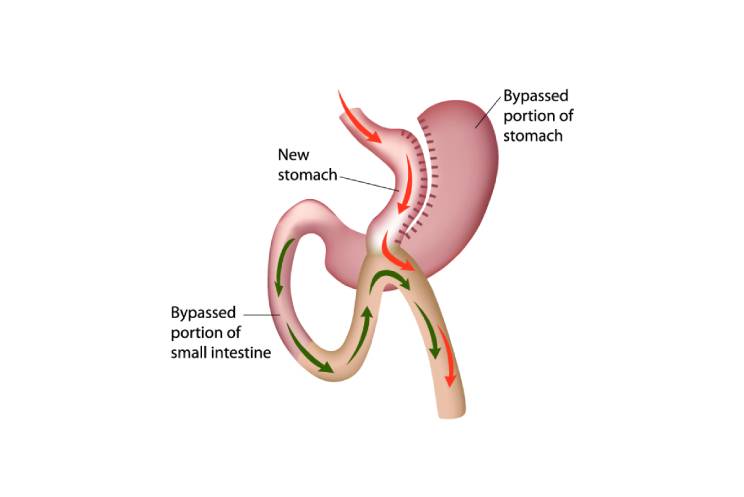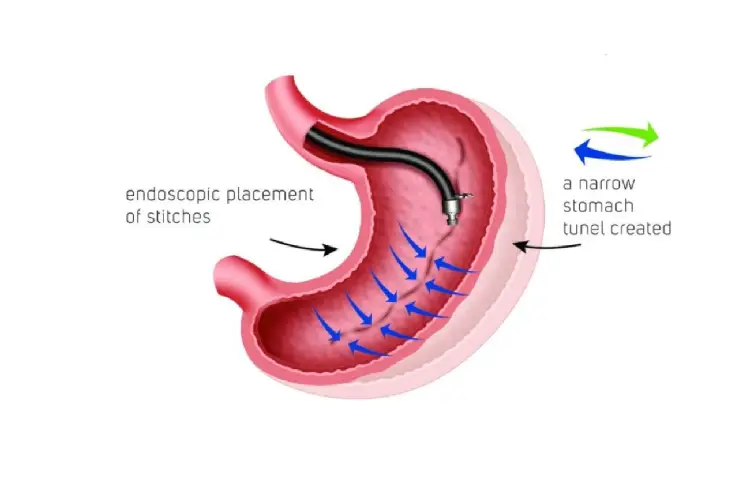Obesity is a severe health condition that is very hard to treat. A lot of people have made serious attempts to lose weight through diet, exercise, and medically supervised weight loss programs, but have failed. In these cases, bariatric surgery is done as a last resort treatment option. Obesity is associated with several medical conditions. After bariatric surgery, patients typically lose about one-half (50%) to two-thirds (66%) of their excess body weight, this is about one-third (33%) of their current weight. Less than 5% of patients undergoing gastric bypass surgery reach their average body weight. It is likely to lose more than 66% of your excess body weight after bariatric surgery, but this requires a commitment to following the dietary guidelines, as well as the motivation and ability to exercise regularly.
Bariatric surgery is linked with massive weight-loss and improves, or even resolves (cures), obesity-related co-morbidities for most patients. These co-morbidities include asthma, high blood pressure, sleep apnea, and other obesity-related breathing ailments, arthritis, lipid (cholesterol) abnormalities, gastroesophageal reflux disease, fatty liver disease, venous stasis, urinary stress incontinence, pseudotumor cerebri, etc.
How Can Bariatric Surgery Help Me?
When combined with a full treatment plan, bariatric surgery is a powerful tool to provide you with long term weight-loss and help you improve your quality of health. Bariatric surgery has been shown to help resolve several obesity-related conditions, such as type 2 diabetes, high blood pressure, heart disease, and more. Frequently, individuals who improve their weight find themselves taking less and fewer medications to treat their obesity-related conditions. However, here are the benefits of bariatric surgery
Improved Quality of Life and Psychological Status with Surgery
In addition to changes in health and longevity, surgical weight-loss increases the overall quality of life. Measures of quality of life that are affected by bariatric surgery include physical functions such as mobility, self-esteem, work, social interactions, and sexual function. Furthermore, depression and fear are significantly reduced following bariatric surgery
Reduction of degenerative joint disease back pain and arthritis, symptoms
Arthritis, derogatory joint disease, and back pain cannot be corrected by bariatric surgery, but their symptoms may be reduced after surgery; however, some patients continue to have severe joint pain after surgery.
Reduction in the risk of heart disease
Since gastric bypass surgery will help you lose weight, your risk of heart disease is also reduced since obesity is an obvious risk factor for heart disease and arteriosclerosis (narrowing of the arteries). However, it is unlikely that weight loss through gastric bypass surgery will change any present heart disease and reduction of the arteries. Today, there is no definitive proof that life span will be extended with gastric bypass, although there is some suggestion that this is the case in patients with diabetes.
Improvement of blood pressure and cholesterol levels
Research shows that blood pressure and cholesterol levels may improve after bariatric surgery, mainly due to the controlled bariatric diet a patient must adhere to after the operation. Many patients can reduce the amount of blood pressure and cholesterol medication they take, or stop it entirely, after bariatric surgery.
Improved Longevity
A lot of population research shows that individuals affected by severe obesity who have had bariatric surgery have a lower risk of death than people affected by obesity who do not have surgery. One of these researches found up to an 89% greater reduction in mortality throughout a 5-year investigation period for individuals who had bariatric surgery when compared to those who did not. Recent population research examining death rates of bariatric and non-bariatric patients found a greater than 90% reduction in death linked with diabetes and a greater than 50% reduction in mortality from heart disease.
The death rate for bariatric surgery (3 out of 1000) is related to that of gallbladder removal and considerably less than that of a hip replacement. The unusually low mortality rate with bariatric surgery is quite exceptional, considering that most patients affected by chronic obesity are in poor health and have one or more life-threatening diseases at the time of their operation. Therefore, as regards mortality, the benefits of surgery are more than the risks.
Choosing to undergo a weight loss procedure is not an easy way to weight loss, but for most, it is a life-saving step. For people suffering from chronic complications associated with obesity, bariatric surgery can give a safe option and a second chance to undo the effects of these conditions. Surgical intervention can help people with chronic obesity lose a substantial amount of excess weight, reduce the amount of obesity-related diseases, increase physical mobility, extend life expectancy, and improve quality of life.
https://www.dartmouth-hitchcock.org/bariatric
http://www.mercycares.com/what-are-the-benefits-of-bariatric-surgery
https://www.lourdesnet.org/programs-and-services/bariatrics-and-weight-loss/bariatric-surgery-services-at-our-lady-of-lourdes-medical-center/benefits-of-bariatric-surgery
This entry was posted in Uncategorized and tagged bariatric surgery, benefits, weight loss surgery. Bookmark the permalink.






